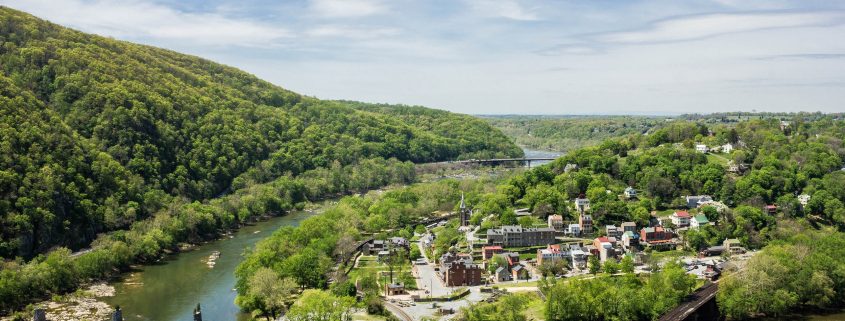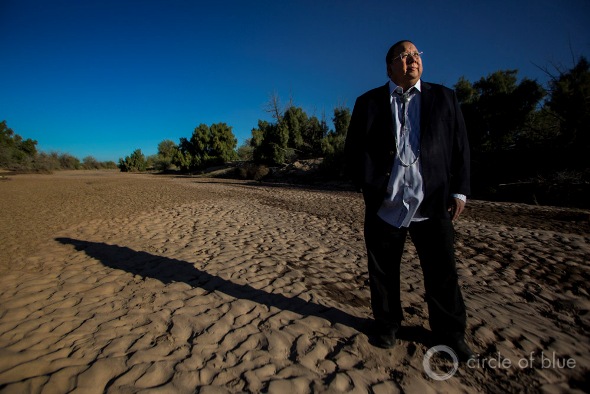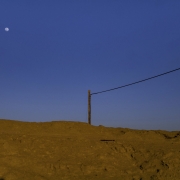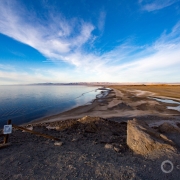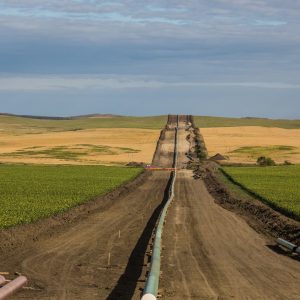West Virginia Confronts Maryland Over Potomac River Authority
Attorney general threatens U.S. Supreme Court lawsuit unless Maryland relaxes grip on the river.
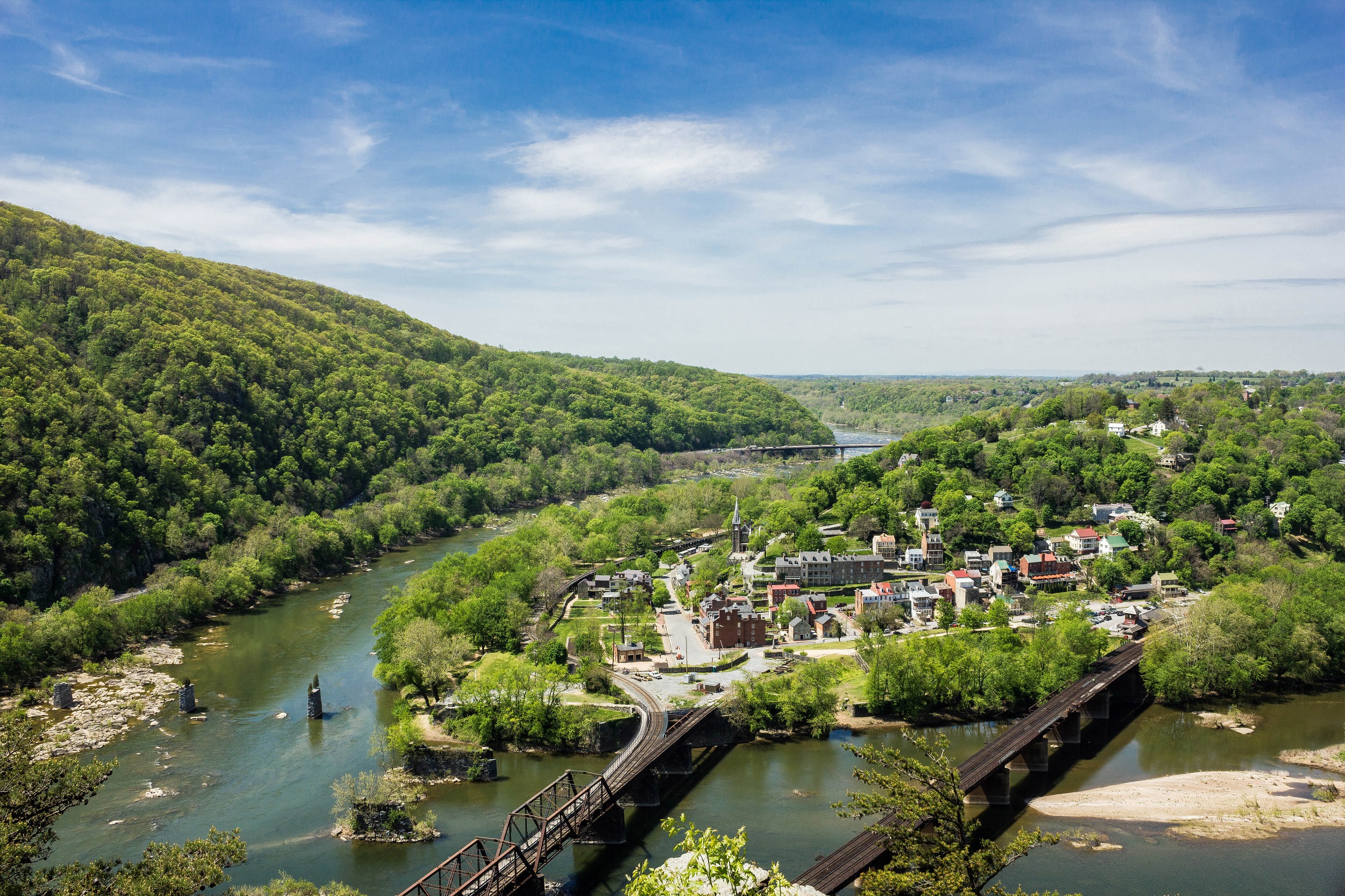
The Shenandoah River, left, joins the Potomac at Harpers Ferry, West Virginia. Maryland’s control over the Potomac is the source of potential legal action by West Virginia.
By Brett Walton, Circle of Blue
In yet another sign that securing adequate water supplies is a political imperative in the eastern United States, West Virginia officials have threatened legal action against Maryland over the Potomac River.
On November 2, Patrick Morrisey, the West Virginia attorney general, sent a letter to Brian Frosh, the Maryland attorney general, and Ben Grumbles, the Maryland environment secretary. The letter outlined concerns about Maryland’s longstanding command over water withdrawals from the Potomac, a river that traces 80 percent of the border between the two states.
Unless Maryland agrees in the next two weeks to negotiate a water-sharing deal, Morrisey said that he would file a lawsuit in the U.S. Supreme Court challenging Maryland’s control over water permitting decisions. The high court has jurisdiction over interstate river disputes.
West Virginia anticipates an increase in water demand in Berkeley County, located in the eastern panhandle and abutting the Potomac. The construction of a Proctor and Gamble manufacturing facility, expected to open in 2017, will lift demand by 1.3 million gallons per day. Add the household needs of the plant’s 700 workers and a host of new office buildings, restaurants, and hotels near the development, and Berkeley County’s total water demand will rise from four million gallons per day to six million within two years, the attorney general’s letter asserts. The Maryland Department of the Environment rejected the county’s request to withdraw more water from the Potomac.
State officials are keeping quiet about the potential legal action.
“We speak through the letter,” Curtis Johnson, a spokesman for the West Virginia attorney general, told Circle of Blue. When asked to discuss the background of the case, Johnson replied: “I think the letter speaks for itself.”
The Maryland attorney general’s office did not return a phone call. Maryland Secretary of the Environment Ben Grumbles sent Circle of Blue a two-sentence statement: “Protecting the Potomac is a priority for all of us. We are reviewing the letter from West Virginia and we will provide an appropriate response.”
The dispute is the latest example of a notable trend: the eastern United States, humid and rich with streams, is a burgeoning legal and political battleground over water supplies. In a case now at trial, Florida wants the U.S. Supreme Court to cut Georgia’s use of the Apalachicola-Chattahoochee-Flint basin, a shared watershed. Also in the South, Mississippi claims that Tennessee is allowing the city of Memphis to pump too much water from an aquifer that crosses state borders, in effect pirating the resource. It is the first Supreme Court case to address interstate groundwater.
“We’re seeing a lot of tension building right now in the east coast over water,” Jeff Kelble, president of Potomac Riverkeeper, a river watchdog, told Circle of Blue.
A Dispute Centuries in the Making
The Potomac region also has a history of conflict over rivers and borders. The Potomac River extends 383 miles through four states — Maryland, Pennsylvania, Virginia, West Virginia — and the District of Columbia. More than 6 million people live in the watershed.
A 1785 compact gave each state the right to use the river for commerce and to build structures, such as wharves, along their banks. Boundary disputes, however, were not settled until 1877 when an arbitration panel, known as the Black-Jenkins award, marked the state border as the low-water line on the south shore of the river. The lawyers, in other words, gave Maryland the entire river bed but they allowed Virginia the right to use the river.
In 1933, Maryland instituted a permit system for Potomac withdrawals. For the next six decades it approved every water withdrawal request that Virginia made. That changed in 1996, when the Fairfax County Water Authority, which serves the northern Virginia suburbs, applied to the Maryland Department of the Environment for a 725-foot-long water intake. Maryland refused, asserting that the water-supply expansion would fuel urban sprawl. It was the first time Maryland denied a permit request from a Virginia agency.
Virginia filed suit in the U.S. Supreme Court, claiming that the language of the 1785 compact and the 1877 boundary agreement allowed it to use the river in accordance with its needs, not only for navigation but for drinking water too. The court ruled in December 2003 in Virginia’s favor. Fairfax County could build its intake and withdraw the water.
In the Virginia ruling, West Virginia sees a mirror to its position, argues Adam Van Grack, a lawyer who works on land use, environmental, and property law in the Potomac region. “I have a sense that West Virginia had the 2003 case in its back pocket and the Proctor and Gamble development is an avenue for the state to go forward and assert its rights,” Van Grack told Circle of Blue.
Unlike the Delaware or Susquehanna, two comparable mid-Atlantic rivers, there is no basinwide authority to regulate water withdrawals. “There’s no way to resolve these issues,” said Kelble of Potomac Riverkeeper. “No one to act as an arbiter.”
Times of drought are when a regulatory regime is most important, Kelble said. Eastern rivers generally are not governed by the legal codes of priority that exist in the West. The western rights system dictates who cuts back and when they must do so. Though many states east of the Mississippi require withdrawal permits, a priority system is often not in place.
Legal observers say that West Virginia has a strong case.
“It’s unlikely for Maryland to want to challenge it,” said Van Grack, who thinks the states will compromise instead of going to court. “I can’t see many reasons why the court would look at West Virginia different than Virginia.”
Others draw a similar conclusion. “Based on the Supreme Court ruling that is out there [from 2003], West Virginia has a good argument,” Phillip Musegaas, a Potomac Riverkeeper lawyer, told Circle of Blue. “Maryland can’t block access or prevent another state from using the resource.”
West Virginia has given Maryland a November 23 deadline to respond to the letter.
Brett writes about agriculture, energy, infrastructure, and the politics and economics of water in the United States. He also writes the Federal Water Tap, Circle of Blue’s weekly digest of U.S. government water news. He is the winner of two Society of Environmental Journalists reporting awards, one of the top honors in American environmental journalism: first place for explanatory reporting for a series on septic system pollution in the United States(2016) and third place for beat reporting in a small market (2014). He received the Sierra Club’s Distinguished Service Award in 2018. Brett lives in Seattle, where he hikes the mountains and bakes pies. Contact Brett Walton

